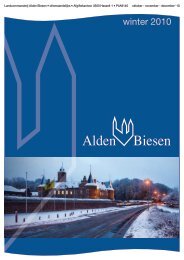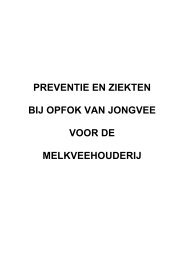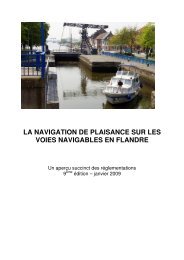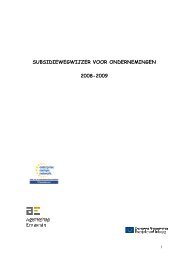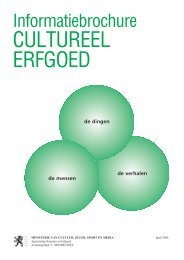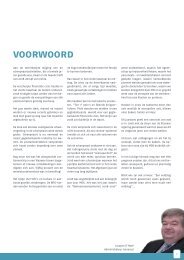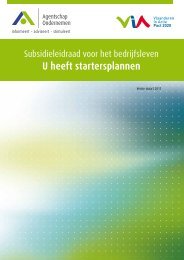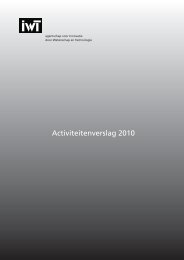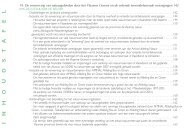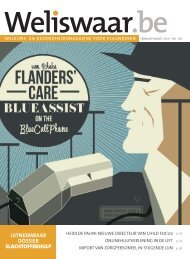Acknowledgements Book of abstracts - Publicaties - Vlaanderen.be
Acknowledgements Book of abstracts - Publicaties - Vlaanderen.be
Acknowledgements Book of abstracts - Publicaties - Vlaanderen.be
Create successful ePaper yourself
Turn your PDF publications into a flip-book with our unique Google optimized e-Paper software.
Paul Koene presents Poster 97 during the poster sessions in the Aula.<br />
Session theme 8: Application <strong>of</strong> welfare assessment protocols<br />
169<br />
Poster 97<br />
FELINE WELFARE IN THE ZOO: FROM INDIVIDUAL ASSESSMENT TO<br />
ZOO LEVEL<br />
P. Koene<br />
Department <strong>of</strong> Animal Sciences, Wageningen University, Wageningen, the Netherlands<br />
Felids are predators with a large repertoire <strong>of</strong> appetitive hunting <strong>be</strong>haviours. In captivity this<br />
repertoire <strong>of</strong> appetitive <strong>be</strong>haviours is not performed when food is provided for free to the animals.<br />
This is one <strong>of</strong> the main causes <strong>of</strong> the occurrence <strong>of</strong> stereotypic <strong>be</strong>haviour. By making the food less<br />
easy to obtain the animal has to work for its meal.<br />
In this paper we give an example <strong>of</strong> the evaluation <strong>of</strong> carcass feeding in a num<strong>be</strong>r <strong>of</strong> zoo housed<br />
large felids on the occurrence <strong>of</strong> stereotypic <strong>be</strong>haviour. Evaluation is done on an individual level<br />
using single-case randomization tests (SCRT). Results obtained on an individual level are combined<br />
on zoo level using meta-analysis.<br />
Subjects were two Amur panthers (Panthera pardus orientalis), one snow panther (Panthera uncia)<br />
and two Asiatic lions (Panthera leo persica). On each <strong>of</strong> the 17-20 experimental days food was<br />
presented to the individual animal according to a predetermined schedule. Days with normal food<br />
(pieces <strong>of</strong> meat), days without food (fasting), days with experimental food (carcasses) were pseudorandomly<br />
varied. Stereotypic <strong>be</strong>haviour was measured using instantaneous scan sampling during 2<br />
hrs after feeding (direct effect) and during 2 hrs in the evening (indirect effect).<br />
Significant effects <strong>of</strong> the feeding schedule were found on several <strong>be</strong>haviour elements using singlecase<br />
analysis. Overall, carcass feeding decreased resting and increased exploration (SCRT,<br />
p0.05). On fasting days<br />
overall more stereotypic <strong>be</strong>haviour was recorded (meta-analysis, p



